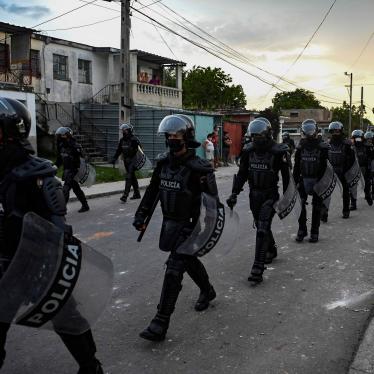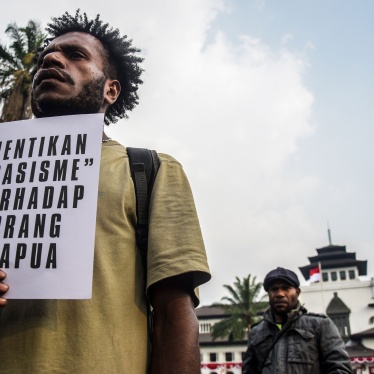The Venezuelan government’s politically motivated decision not to renew a television broadcasting license is a serious setback for freedom of expression in Venezuela, Human Rights Watch said today. The decision will shut down Radio Caracas Television (RCTV), the country’s oldest private channel, when its license expires on May 27, 2007.
President Hugo Chávez has repeatedly threatened to cancel RCTV’s license ever since he accused it of supporting an April 2002 coup attempt. On December 28, 2006, he announced during a military ceremony that the order not to renew the channel’s 20-year license had already been drafted.
“President Hugo Chávez is misusing the state’s regulatory authority to punish a media outlet for its criticism of the government,” said José Miguel Vivanco, Americas director at Human Rights Watch. “The move to shut down RCTV is a serious blow to freedom of expression in Venezuela.”
Of the three commercial stations accessible in all parts of Venezuela, only RCTV has remained strongly critical of the government. The other two—Venevision and Televen—were themselves accused of supporting the attempted coup and subsequent anti–government protests. But both have since removed virtually all content critical of the government from their programming.
Venevision’s license is also due for renewal on May 27, but the government has remained silent about the channel’s future, in contrast to its repeated public attacks on RCTV.
Officials defend the decision by pointing out that the government is merely exercising its right not to renew RCTV’s broadcasting license when it expires. However, no procedure was established to enable RCTV to present evidence and arguments in its favor; the criteria on which the decision was based were not established clearly beforehand, nor was there any application or selection process allowing RCTV to submit an application for continuation of its concession.
In March 2007 the government published details of its case—a 360–page “White Book on RCTV”—which includes pages of allegations against the station, some of them based on investigations by the government broadcasting authority CONATEL. The report was issued months after Chávez made his announcement and does not address the station’s replies to CONATEL’s investigation.
The White Book accuses RCTV of “inciting rebellion,” showing “lack of respect for authorities and institutions,” breaking the laws protecting minors, engaging in monopolistic practices, and failing to pay taxes. However, it does not cite a single final judicial or administrative ruling establishing that the channel had in fact committed any of these alleged offenses during its 20–year contract. No one from the channel has been convicted for their alleged complicity in the attempted coup.
Government officials have announced that RCTV will be replaced by a public service channel open to community groups and independent producers and without editorial control by the state or government programming.
The government has not made a clear case why RCTV must be taken off the air to set up the new channel. The government has frequencies at its disposal on both VHF and UHF wavebands in many parts of Venezuela. It has already used UHF frequencies to successfully install a nationwide education and cultural channel, Vive TV.
“The government’s proposal to democratize the airwaves sounds great in theory, but shutting down broadcasters for their political views is not the way to do it,” said Vivanco.






